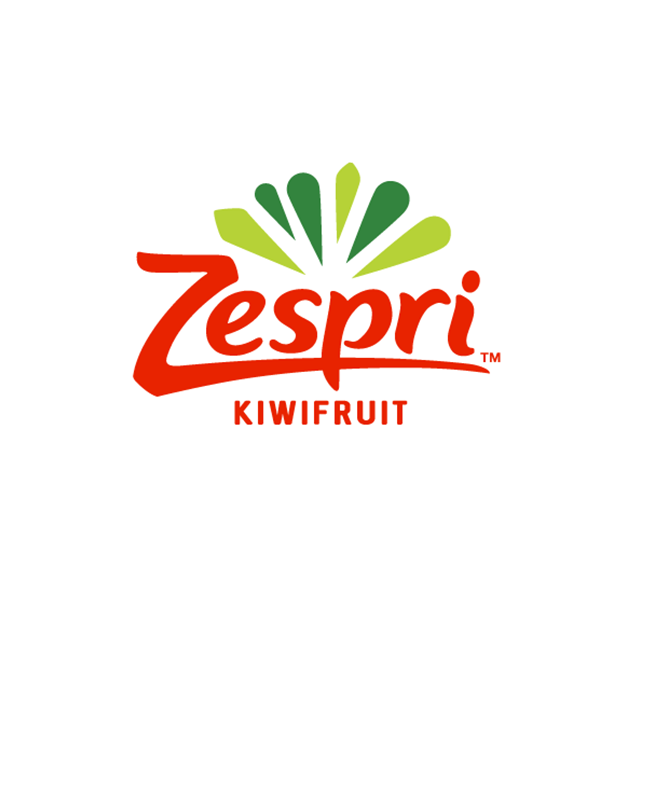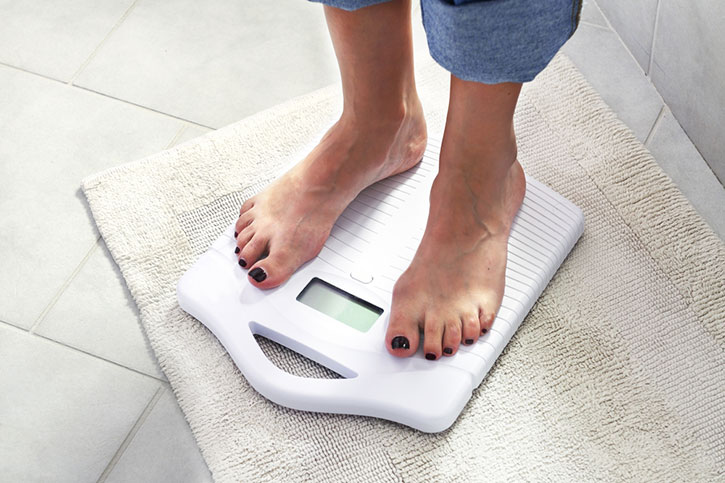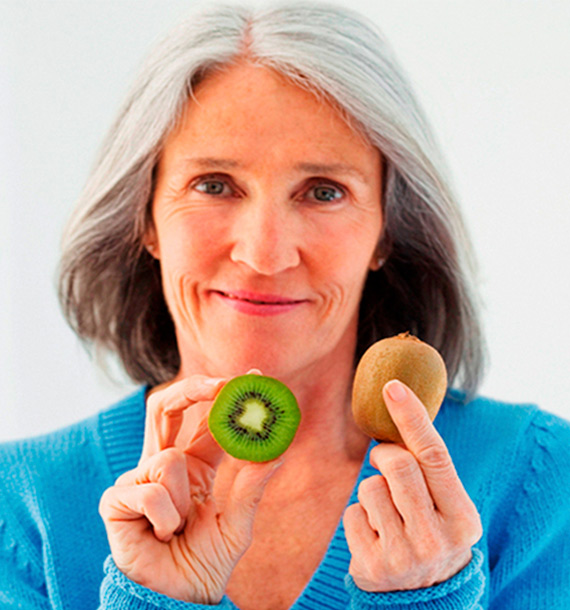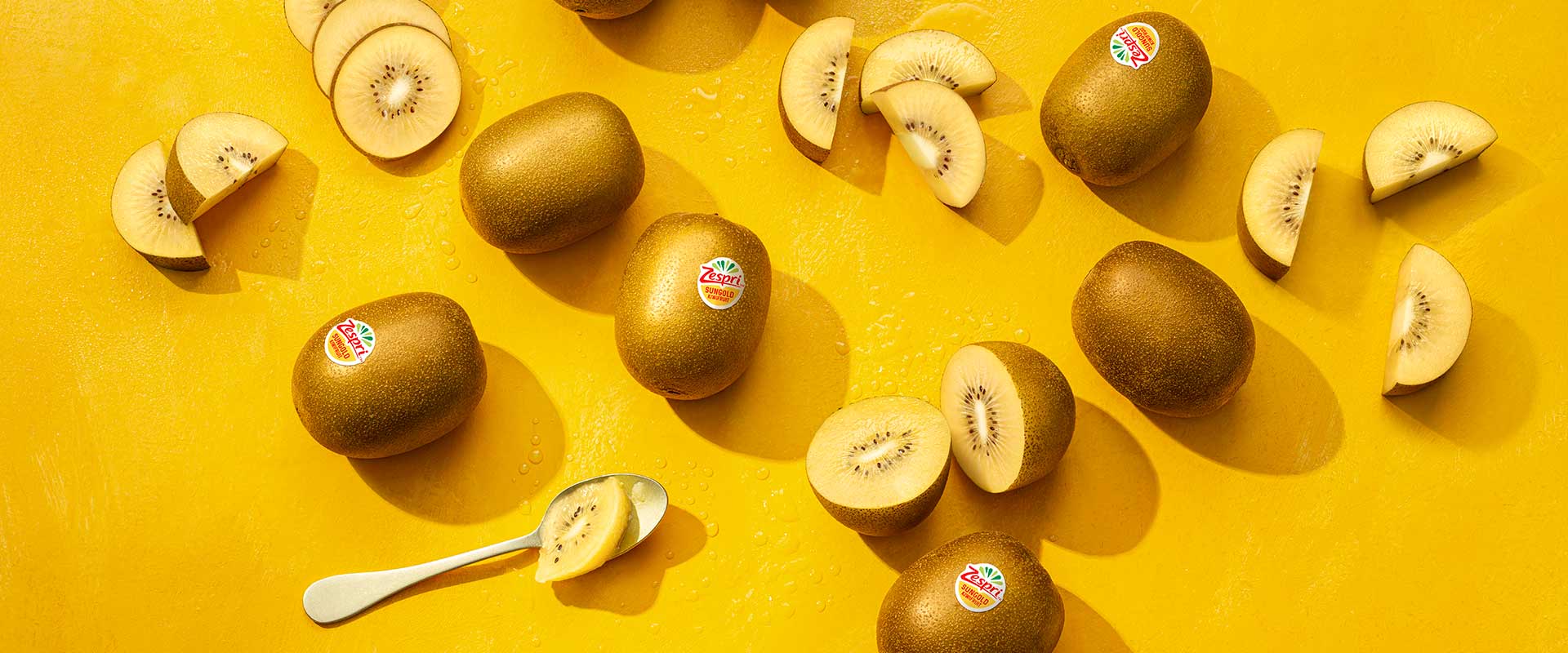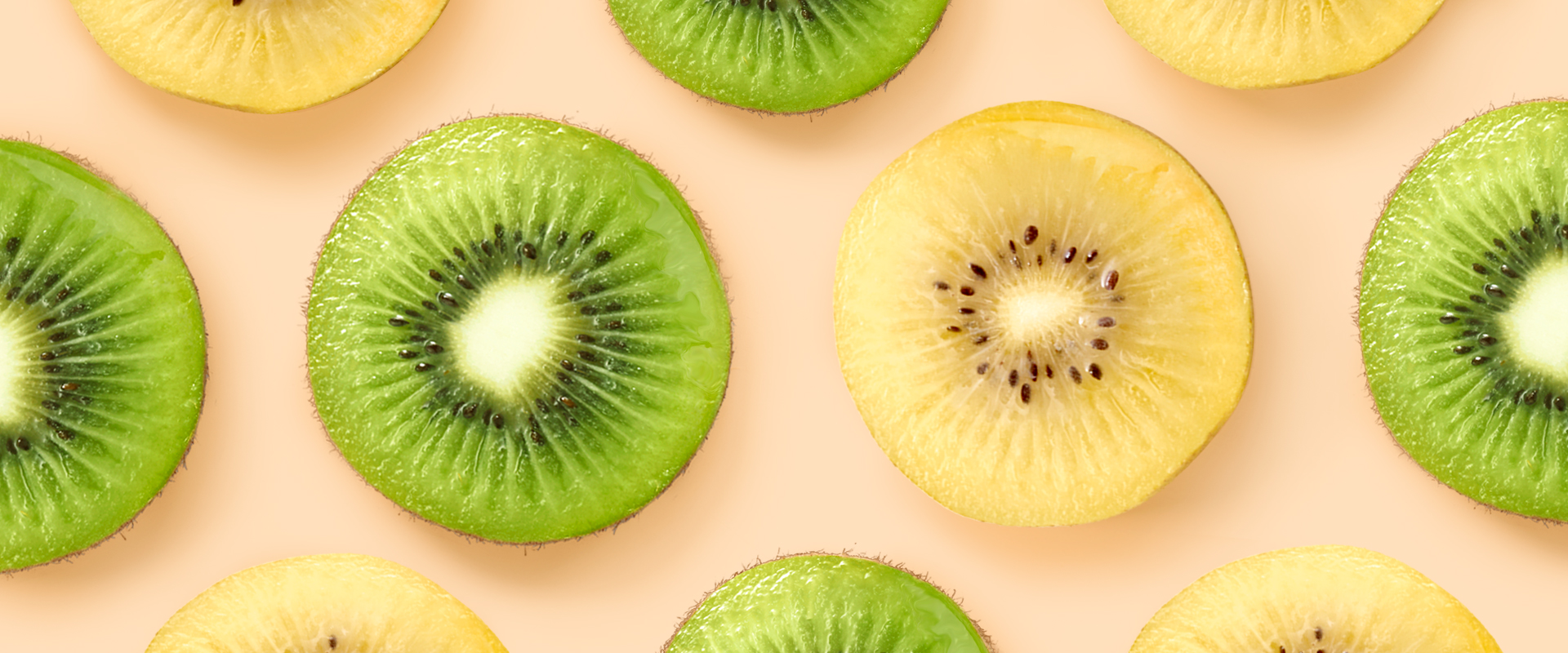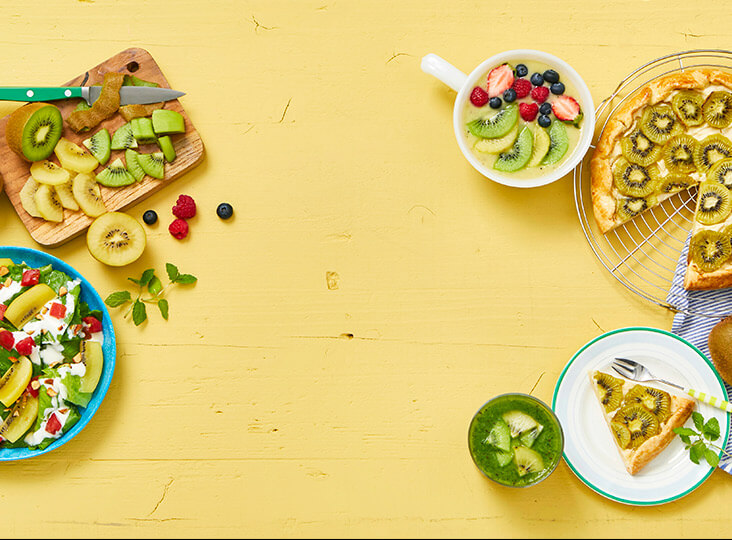Feel better during the menopause with kiwifruit!
-
Zespri SunGold kiwifruit
-
Zespri Green kiwifruit
As women approach menopause they may experience a range of symptoms, but for many, menopausal weight gain is the most difficult to accept.
About 90%1 of menopausal women gain weight due to a combination of factors including decreased oestrogen levels, a slower metabolism, and lifestyle factors like poor diet and lack of exercise.
And while we all know that eating fewer calories coupled with being physically active is the most successful weight-loss treatment around, tipping the scale back in your favour isn't as hard as you might think!
By filling up on high-fibre fruits and vegetables like Zespri kiwifruit, you can help minimise weight gain while getting the nutrients you need to stay healthy. This is because fruits and vegetables have high water and fibre content, thereby reducing their energy density.2
How can Zespri® kiwifruit help you lose weight?
Zespri kiwifruit is a low energy-dense fruit
Fruit sometimes gets a bad reputation in the weight loss world because it contains sugar. However, one Zespri Green kiwifruit (100 g) contains only 81 kcal, while Zespri SunGold kiwifruit contains just 79 kcal, making them a great regular, guilt-free snack.3,4Zespri kiwifruit keeps you feeling fuller for longer
The high fibre and water content of Zespri kiwifruit helps suppress your appetite by keeping you feeling fuller for longer. So by eating Zespri kiwifruit, you are less likely to snack on high-sugar foods between meals, helping you maintaining a healthy weight.Zespri kiwifruit keeps you healthy from the inside out
Ongoing research indicates that eating kiwifruit with your breakfast can significantly reduce and slow down the uptake of sugars from your food into the bloodstream, which is good news for your blood sugar control.5
EAT BETTER, LOOK BETTER
 Did you know that regularly eating Zespri kiwifruit can also help to support the appearance of your skin?
Did you know that regularly eating Zespri kiwifruit can also help to support the appearance of your skin?
Zespri kiwifruit are high in vitamin C,3,4 which helps your body produce collagen and elastin – both important proteins in the skin. Production of collagen and elastin decreases as we age, causing skin to lose elasticity. Getting enough vitamin C is important in keeping your skin healthy and improving collagen formation, which may help reduce the signs of aging.
Vitamin C is also a powerful antioxidant, which helps defend the body’s cells against free radicals – damaging substances caused by pollution, cigarette smoke and other toxins. Once neutralised, your body will suffer less from oxidative stress, which has been shown to reduce the signs of skin aging like fine lines and age spots.
Sources
- Dains JE, Ciofu Baumann L, Scheibel P. Advanced Health Assessment & Clinical Diagnosis in Primary Care. Elsevier Health Sciences, Apr 24, 2015
- Can eating fruit and vegetables help people to manage their weight? Available at: https://www.cdc.gov/nccdphp/dnpa/nutrition/pdf/rtp_practitioner_10_07.pdf (accessed 6 September 2016)
- USDA national nutrient database for standard reference (release 28) 2015
- New Zealand Ministry of Health. New Zealand FOODfiles 2014 Version 01.
- Mishra S, Willis J, Ansell J, Monro JA. Equicarbohydrate partial exchange of kiwifruit for wheaten cereal reduces postprandial glycaemia without decreasing satiety. Accepted for publication in Journal of Nutritional Science (2016)
